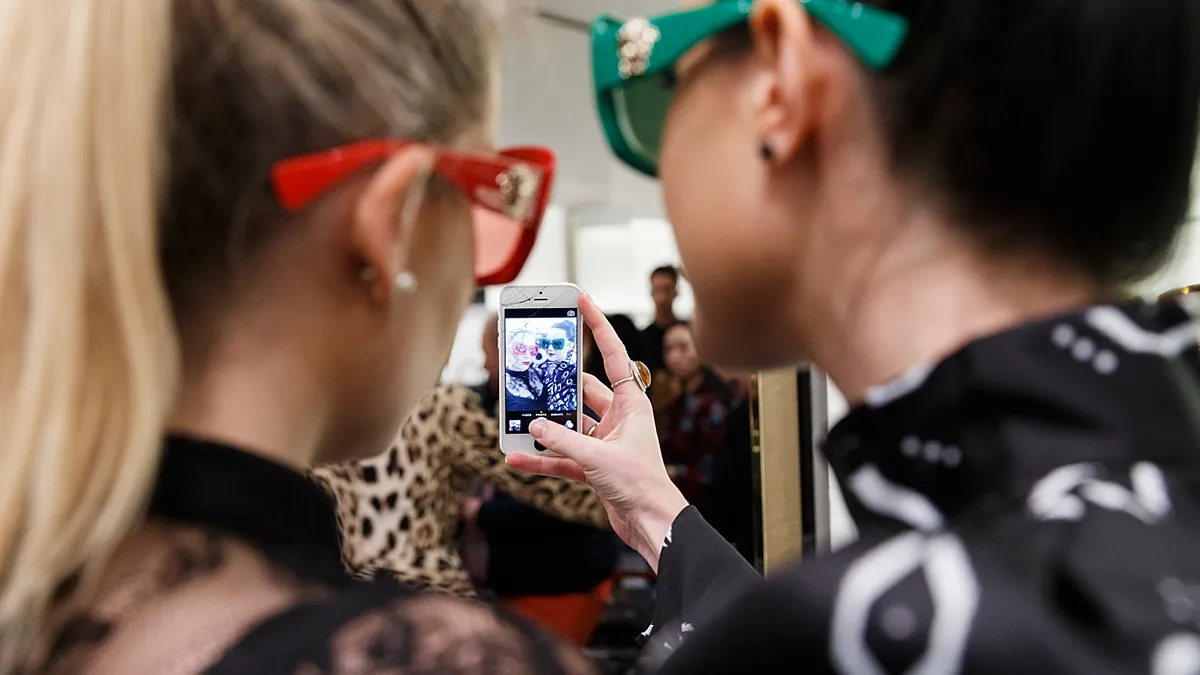Pathways to careers in creative sectors can be elusive, particularly for those who don’t have connections to people already working in them. Yellowbrick, a five-year-old company based in New York City, wants to change that.
By partnering with a range of media, music and fashion brands — along with postsecondary institutions that specialize in those areas — Yellowbrick is trying to open doors to careers in those fields by offering courses that help students learn more about what they entail.
This month, the company added a noncredit course covering streetwear. Students learn from industry and academic experts about the large and growing market, and they will get a certificate of completion upon finishing the course. That joins other noncredit courses in topics such as the sneaker business, fashion, sports management and tourism.
These courses are targeted at Generation Z and millennial learners. Rob Kingyens, Yellowbrick's founder and CEO, notes they want to find purpose in their careers and have what they learn in college help them make that connection.
Below, Education Dive asked Kingyens three questions by email about the future of postsecondary education.
What's the biggest change you see underway in postsecondary education today from how the sector has previously operated?
Students are demanding a stronger connection between college and careers. It's one of the top reasons Generation Z is enrolling in college and is why some millennials are seeking additional education to help them transition into careers they're passionate about. In fact, adults with college experience who see a connection between their coursework and their work are much more likely to consider their education worth the cost.
I'm encouraged to see many higher ed institutions rising to the task. Universities like Arizona State and Oregon State are redesigning the college-to-career "handoff." New York University (NYU) has teamed up with some of the best experts in industries like music and hospitality to work with us to develop bite-sized courses that help individuals translate their passions into careers.
What are the most common questions Yellowbrick gets from colleges about how students are being prepared for the workforce and/or further study through your programs?
We are working with colleges to create dynamic, meaningful programs designed particularly for Gen Z. The common questions we get from our institutional partners are questions like: What are the fields this generation wants to learn about? How do they want to learn? What makes their educational experience a positive and relevant one for the careers they want to pursue?
Gen Z is seamlessly moving in and out of the digital and physical worlds. They are mobile-first. We're finding that they want learning to occur in the flow of life, and they want it to be highly curated and relevant to their own aspirations. Institutions like NYU, Parsons and the Fashion Institute of Technology have teamed up with big brands like Billboard, Complex and Allure to design courses with us that provide timely insights into sectors like music, fashion and sports that prepare students for the "right now" needs of those industries.
Another common question that gets asked is who our audience is, and the simple answer is millennials and Gen Z. From high schoolers to people wanting to career switch is who our platform resonates with. Younger generations are looking for purpose in their careers, and they're willing to leave their employers if they don't find it there. Some of our students also know they don't want to pursue a four-year degree and just need guidance in the industry they are passionate about.
What does the postsecondary education sector need to do to be ready for the potential forecasted recession?
In the last recession, we saw college enrollments rise, particularly at community colleges. Often, in times of economic lag, individuals return to postsecondary education, seeking additional training and skills that can make them attractive job candidates. While the sense of urgency is already certainly here, forward-thinking institutions need to be ready to clearly communicate how they are preparing students for the ever-changing economy.










